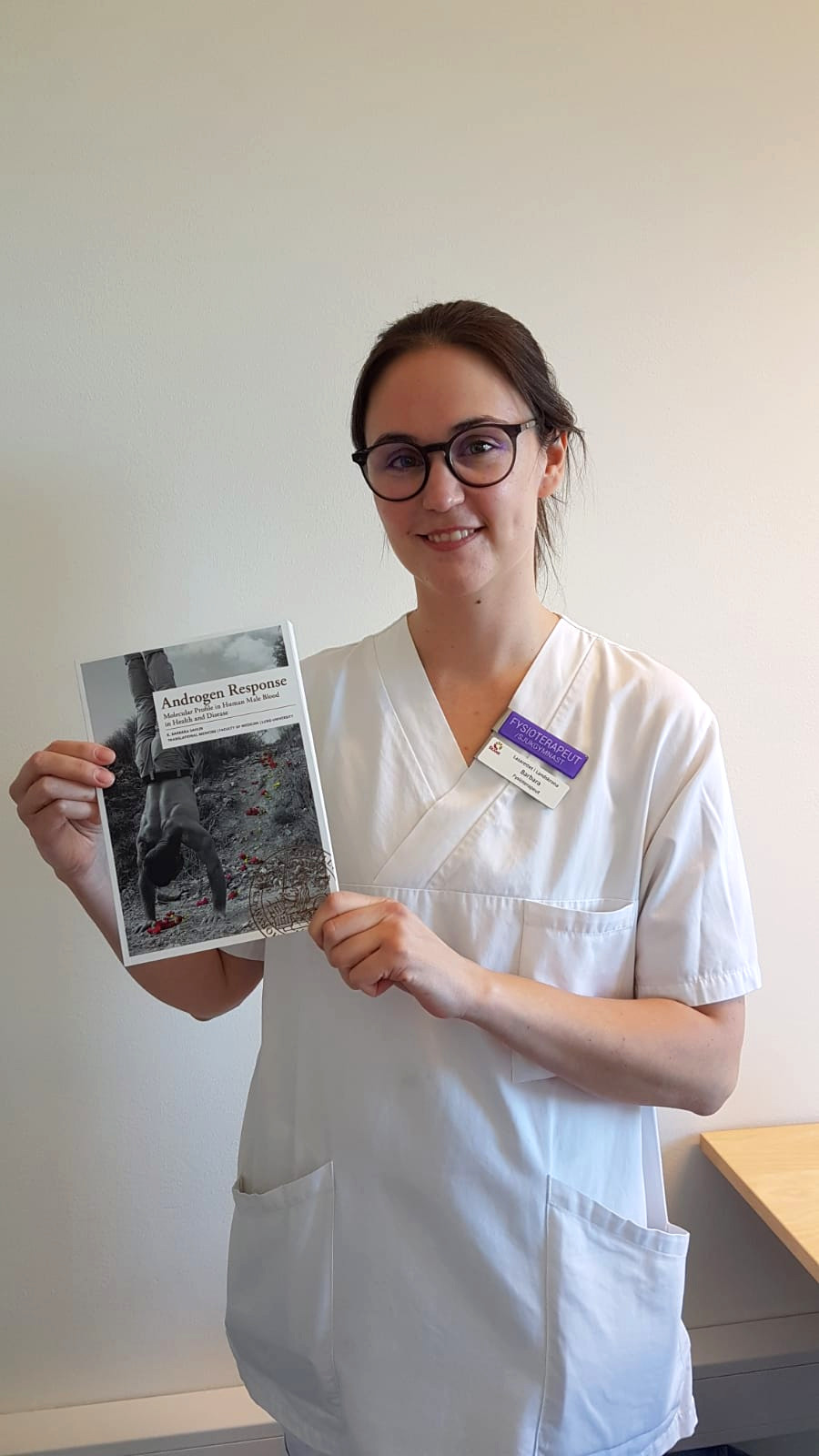At the end of February 2022 Barbara Sahlin successfully defended her PhD, where the results indicate for the first time in healthy men that early effects of testosterone deficiency provoke metabolic changes detected in blood.
“I started my study to gain in-depth knowledge about testosterone function and normal physiology. I also wanted to investigate the link between testosterone and metabolic comorbidities, because decreased life expectancy has been found in men with low testosterone levels compared to men with normal levels of the hormone,” says Barbara Sahlin, who conducted her PhD at the Department of Translational Medicine at Lund University in Sweden.
Testosterone is an androgen that is essential for male reproductive and metabolic health. It is crucial to have sufficient reproductive hormone during growth and puberty to achieve peak musculoskeletal health and reproductive function.
“In the study we identified candidate plasma markers of androgen activity in a designed human model of healthy young men with pharmacologically induced testosterone changes. We used highly sophisticated mass spectrometry techniques available in Lund, which enables simultaneous analysis of hundreds of peptide sequences in a single plasma sample,” Barbara Sahlin explains.
A key outcome of the study was the identification of three candidate protein markers of androgen activity, of which two markers significantly changed in those infertile patients with an impaired response to testosterone. Additionally, the study showed that the protein markers also change in the patient cohort according to certain comorbidities.
“I hope that the novel markers identified in my thesis will serve as a tool to better determine testosterone deficiency, as well as to detect patients at risk for metabolic pathology associated with testosterone. The markers may also determine which patients need treatment and serve as a tool in treatment evaluation and monitoring,” concludes Barbara Sahlin.
A number of publications have been published to present the findings in Barbara’s PhD project – find out more:
November 2021: Short-Term Effect of Induced Alterations in Testosterone Levels on Fasting Plasma Amino Acid Levels in Healthy Young Men

